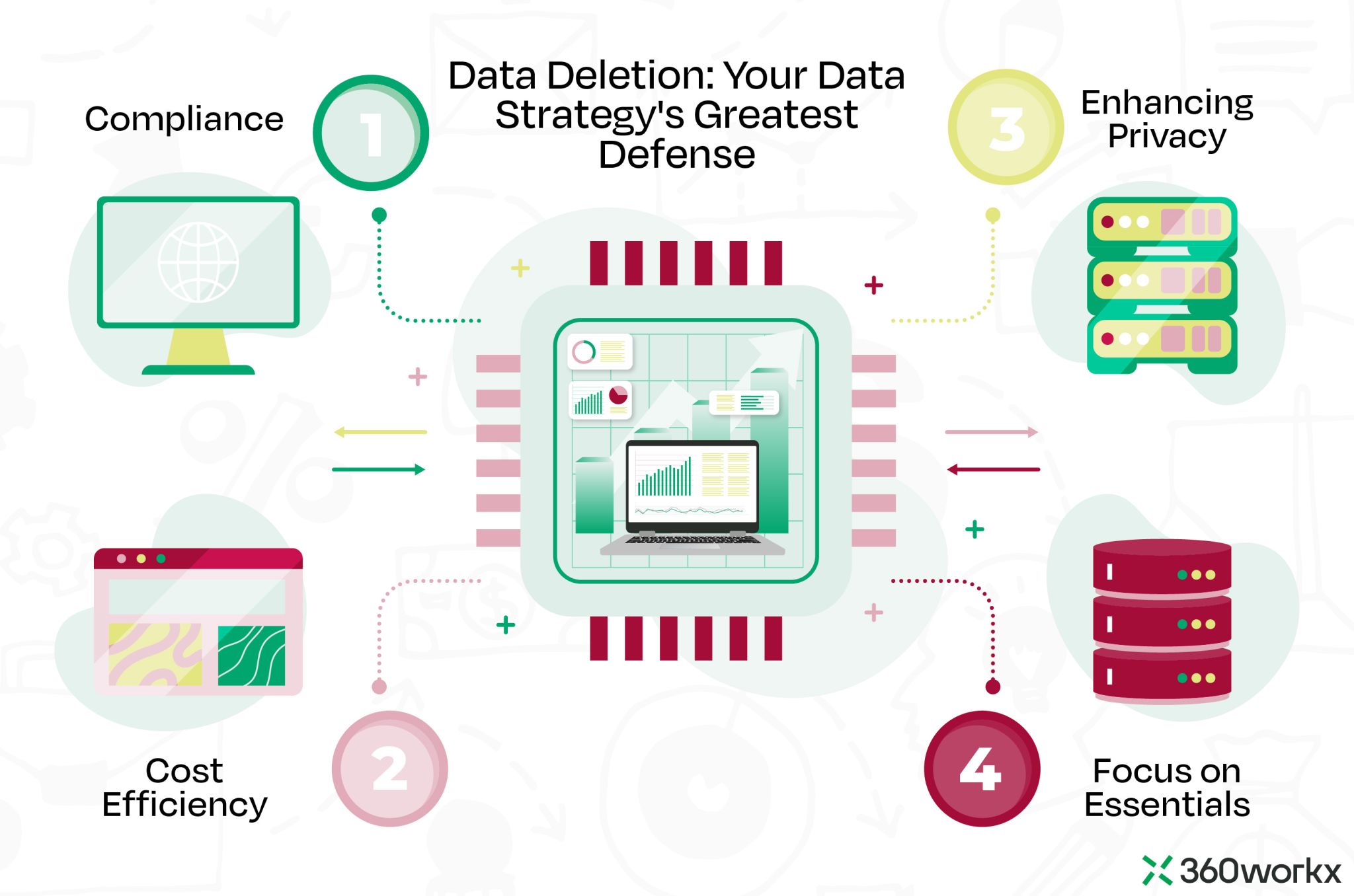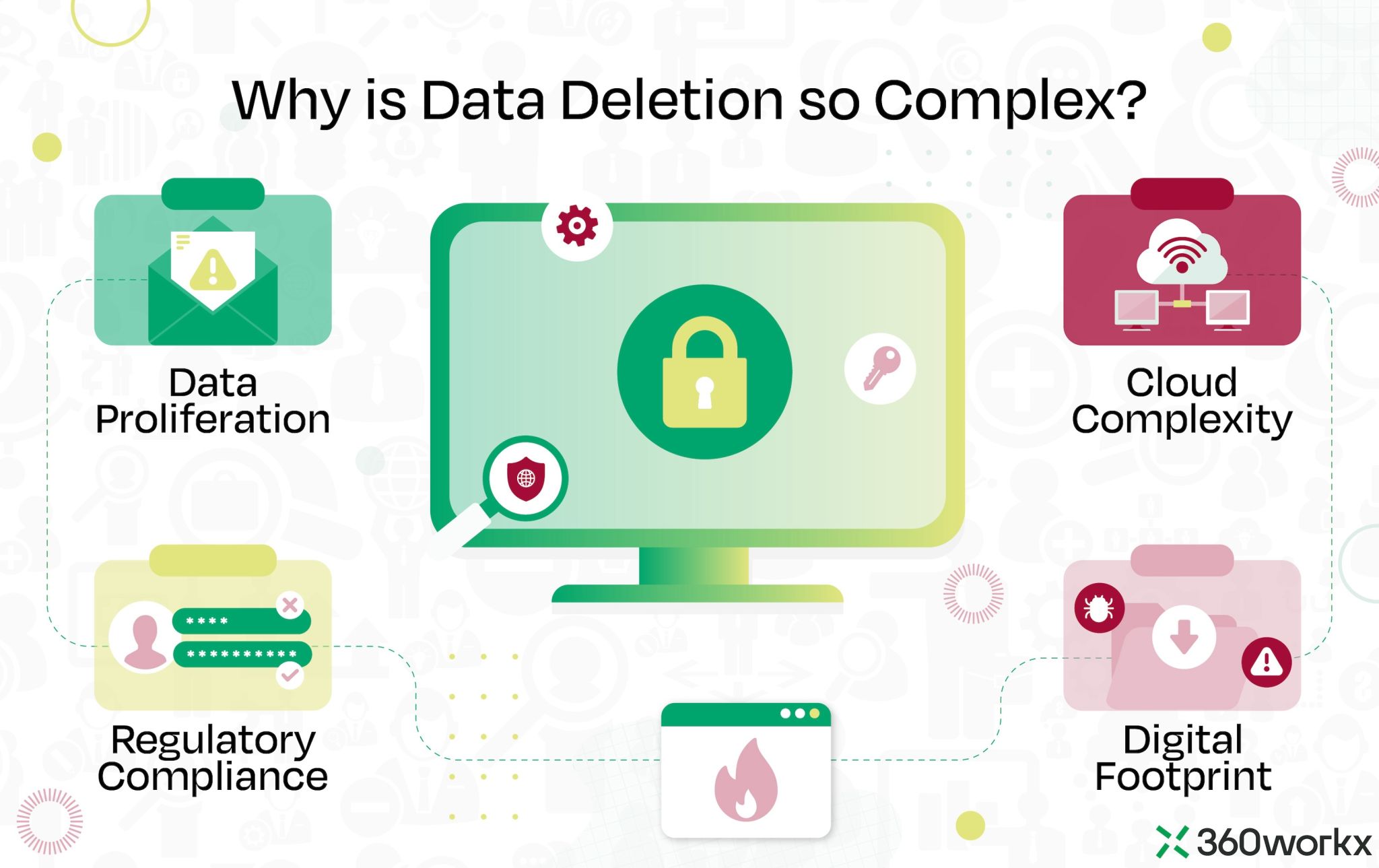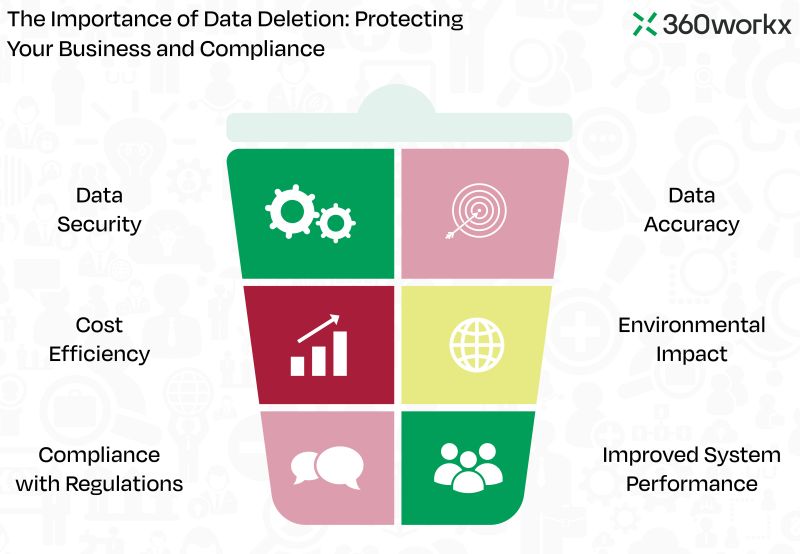In today’s data-driven world, protecting sensitive information is a top priority. While security measures like encryption and access controls are essential, one often overlooked yet powerful defense is data deletion.
Data deletion isn’t just an operational task—it’s a strategic necessity that strengthens security, ensures compliance, and optimizes costs. Here’s why integrating data deletion into your data strategy is crucial:
1. Compliance with Data Regulations
Regulations such as GDPR, the revised Swiss Privacy Law (nFADP), CCPA, and other data protection laws require organizations to delete personal data when it is no longer needed for its original purpose. Failure to comply can lead to severe legal consequences, including hefty fines and reputational damage.
2. Cost Efficiency
Storing large volumes of unnecessary data comes at a cost. Cloud storage fees, infrastructure maintenance, and data processing costs can quickly add up. By proactively deleting obsolete and redundant data, organizations can optimize their storage expenses and improve system performance.
3. Enhancing User Privacy
User trust is built on transparency and responsible data handling. When organizations retain personal data indefinitely, they expose themselves to privacy risks and potential data breaches. Deleting data when it is no longer required demonstrates a commitment to privacy and ethical data management.
4. Improved Data Management and Insights
A cluttered data environment makes it harder to extract meaningful insights. By eliminating outdated or irrelevant data, organizations can streamline data analysis, enhance decision-making, and focus on valuable datasets that drive business growth.
Implementing a Strategic Data Deletion Process
Effective data deletion is not about erasing information recklessly; it requires a systematic, well-documented, and automated approach. Best practices include:
- Setting Data Retention Policies: Define how long different types of data should be retained before deletion.
- Automating Data Deletion Workflows: Use data governance tools to enforce consistent deletion practices.
- Ensuring Secure Deletion Methods: Permanently remove sensitive data from all storage locations, including backups.
- Maintaining Audit Trails: Keep track of deletion activities to ensure compliance and transparency.
Final Thoughts
Data deletion is a proactive defense mechanism in any robust data strategy. It mitigates security risks, ensures compliance, reduces operational costs, and enhances user privacy.
By integrating data deletion into your organization’s data lifecycle, you can create a more secure, compliant, and efficient data management framework.
🔹 Ready to streamline your data deletion process? Learn how Data Privacy Hub can help you implement automated, compliant, and secure data deletion strategies.



